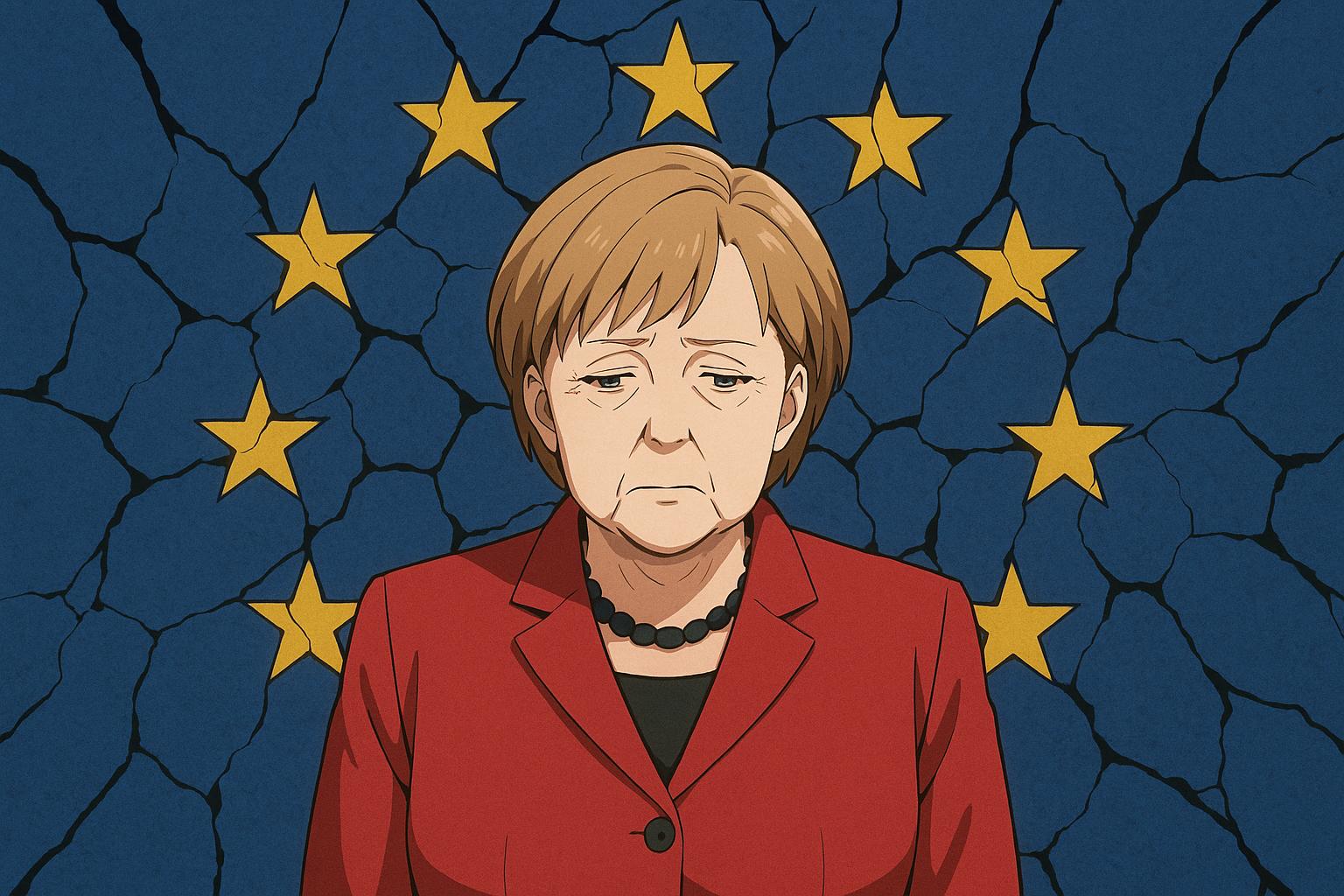Former German Chancellor Angela Merkel has re-emerged in the political dialogue, delivering a stark warning regarding the future stability of the European Union. Speaking at the Southwestern Press Forum in Neu-Ulm during a presentation of her memoir, "Freedom," she expressed grave concerns that the EU could face disintegration if member states persist in tightening border controls and abandoning collective migration policies. Merkel's remarks coincide with growing nationalism throughout Europe, reflecting a significant shift in political sentiment, particularly in light of newly implemented migration controls by Chancellor Friedrich Merz’s cabinet.
These stringent new measures, which prohibit asylum applications at all German land borders with limited exceptions for vulnerable groups, mark a considerable deviation from Merkel’s 2015 “open-door” policy. That policy, which facilitated the entry of over a million migrants during a time of crisis, has now been replaced by a hardline approach, championed by Interior Minister Alexander Dobrindt, that aims to deter illegal migration. “I do not believe we can decisively combat illegal migration at the German-Austrian or German-Polish border… I have always advocated European solutions,” Merkel stated, emphasising that unilateral border closures risk undermining the foundational principles of the EU, particularly the freedom of movement within the Schengen Area.
The urgency of Merkel's warnings is magnified by the recent electoral landscape in Germany, where the far-right Alternative for Germany (AfD) party has sharply increased its political clout, garnering 20.8% of the vote in February’s elections. The ruling coalition, formed in response to AfD’s rising influence, has adopted a stance aimed at curbing its appeal, which has led to the current government’s embrace of stricter border controls as a direct response to public sentiment. This shift is perceived not only as a political strategy but also as a reflection of deep-seated frustrations directed towards the EU's failure to address migration issues effectively.
Recent statistics illustrate the immediate impact of these new border controls: Germany reported a 45% increase in individuals turned away from its borders within just a week following the implementation of tighter measures. Interior Minister Dobrindt highlighted the need to combat smuggling networks that exploit migrants, asserting that the government is acting to protect Germany’s welfare system from abuse. Despite these intentions, the efficacy and practicality of such measures are already under scrutiny, as German police are finding enforcement to be challenging due to staff shortages and logistical issues.
The dynamic of Merkel’s resurgence in this discussion illuminates a growing schism not only in Germany but across Europe. Recent controversies have surfaced, most notably, criticisms from leaders of Poland and Greece who condemned Germany's unilateral approach, further complicating EU discussions aimed at a unified response to migration. While Merkel has vocally insisted on a collaborative EU solution, historical resistance from countries rejecting mandatory refugee quotas has hindered progress. This stagnancy raises concerns that Germany’s current trajectory towards unilateralism may inadvertently deepen fractures within the EU, counteracting the very stability Merkel advocates.
The European Union has faced numerous crises over the past two decades, yet the current migration debate may pose its most formidable challenge. Striving for a unified approach has become increasingly difficult as national governments prioritise local political pressures over collective responsibilities. This shift risks undoing decades of integration within the EU framework, a reality Merkel warns could lead to the fruition of a “destroyed” Europe, should current trends persist.
In a climate where far-right rhetoric is gaining ground, the challenge remains to balance political autonomy with European solidarity. Merkel’s call for a coordinated response to migration is timely yet fraught with obstacles. Whether her assertions resonate enough to encourage a reevaluation of EU migration policies—or prompt a broader dialogue regarding shared European values—remains a critical question as the continent grapples with the complexities of immigration in an increasingly fragmented world.
📌 Reference Map:
- Paragraph 1 – [1], [6]
- Paragraph 2 – [1], [3], [5]
- Paragraph 3 – [2], [4], [7]
- Paragraph 4 – [1], [3], [5]
- Paragraph 5 – [6]
- Paragraph 6 – [1], [4]
- Paragraph 7 – [1], [2]
Source: Noah Wire Services
